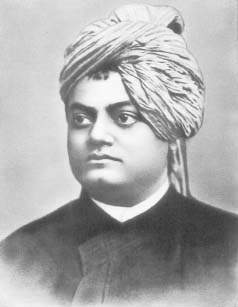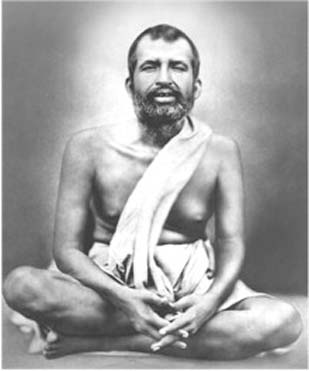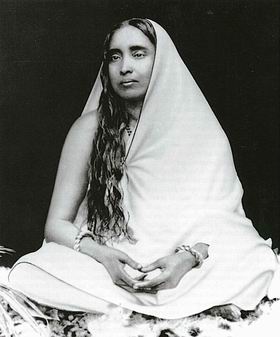New Document
New Document
Program Details: Note: Your grade is the one
you will be entering in the new school year.
Registration:
For Participants' Pre-registration click here
For Judges' Pre-registration click here
For Volunteers' Pre-registration click here
Contacts:
For more information please contact
Competition Director: Vyochana Mamillapali 571-395-3508
Competition Director: Siri Duddella 703-623-7474
Vaidy Bhaskaran (703) 391-7267
Jothi Radhakrishnan (703) 598-3761
Send E-Mail to yd@balavikas.org
or info@balavikas.org
Rules:
Please bring your own pencils, crayons, and paper. To be consistent, only crayons will be allowed for coloring competition.
If interested in entering Recitation, you can download/print from this web site. If you are encountering problems, call Syamala at (703) 968-7176 and the piece will be sent to you.
Drawing for the coloring competition will be given on the day of the competition, and a 60 minute time period will be allotted for coloring.
Essays for these assigned topics can be prepared and researched ahead of time, however on the day of the competition, no notes or references can be used. Essays must be written in the 60 minute time period allotted.
Speeches must be between 3-5 minutes with a 30-second grace period.
Every religious chant (regardless of language or religion) must be explained in English. These chants must be between 2 - 3 minutes with a 30-second grace period.
Stories with a clear moral and ethical message will be accepted. Stories must be between 2-3 minutes with a 30-second grace period.
Your grade is the one you will be entering in the new school year.
PLEASE NOTE: All competitors will be recognized with Certificates. First three winners in each category will receive trophies.
Recitation Text:
It fills my heart with joy unspeakable to rise in response to the warm and cordial welcome which you have given us. I thank you in the name of the most ancient order of monks in the world; I thank you in the name of the mother of religions; and I thank you in the name of the millions and millions of Hindu people of all classes and sects.
My thanks, also, to some of the speakers on this platform who, referring to the delegates from the Orient, have told you that these men from far-off nations may well claim the honour of bearing to different lands the idea of toleration. I am proud to belong to a religion which has taught the world both tolerance and universal acceptance. We believe not only in universal toleration, but we accept all religions as true. I am proud to belong to a nation which has sheltered the persecuted and the refugees of all religions and all nations of the earth. I am proud to tell you that we have gathered in our bosom the purest remnant of the Israelites, who came to southern India and took refuge with us in the very year in which their holy temple was shattered to pieces by Roman tyranny. I am proud to belong to the religion which has sheltered and is still fostering the remnant of the grand Zoroastrian nation. I will quote to you, brethren, a few lines from a hymn which I remember to have repeated from my earliest boyhood, which is every day repeated by millions of human beings: 'As the different streams having their sources in different places all mingle their water in the sea, so, O Lord, the different paths which men take through different tendencies, various though they appear, crooked or straight, all lead to Thee.'
The present convention, which is one of the most august assemblies ever held, is in itself a vindication, a declaration to the world, of the wonderful doctrine preached in the Gita: 'Whosoever comes to Me, through whatsoever form, I reach him; all men are struggling through paths which in the end lead to Me'. Sectarianism, bigotry, and its horrible descendant, fanaticism, have long possessed this beautiful earth. They have filled the earth with violence, drenched it often and often with human blood, destroyed civilization, and sent whole nations to despair. Had it not been for these horrible demons, human society would be far more advanced than it is now. But their time is come; and I fervently hope that the bell that tolled this morning in honour of this convention may be the death-knell of all fanaticism, of all persecutions with the sword or with the pen, and of all uncharitable feelings between persons wending their way to the same goal.
- Swami Vivekananda
At the World's Parliament of Religions, Chicago, 11 September 1893
Now I will talk about the promotion of religious harmony. If you have a sense of global responsibility, all human beings, including non-believers, and even those who criticize religion, who are anti-religion, are your brothers and sisters. Once we develop that, there is no problem with people having different religious faith. That is their right. If you look closely, all major religious traditions, as I mentioned briefly before, carry the same message of love, compassion and forgiveness. A different approach is necessary because of different locations, different times and different climates. People's mentality is a little different. Therefore a different approach is necessary to promote these human values. All major religious traditions carry the message of love, and a sense of brotherhood and sisterhood. So, it is a matter of a different approach.
Some say that there is God, that God made all these things and that we are therefore brothers and sisters in a true sense. Some say it is the law of causality. Again, good experience comes from love and respect for others. Bad experience comes from harming others. That brings negative consequences. It is the same end but with a different approach. Therefore, if you understand these things, you will see that there is no obstacle to bringing genuine harmony among religious traditions. It may be useful here to make a distinction between faith and respect. Faith is towards one's own religion, respect is to all religions. That is one thing. Another thing is the concept of one religion, one truth and the concept of several truths, several religions. Those two things appear contradictory, but that is due to the different context. On an individual basis, the concept of one truth, one religion is very relevant in developing a single-pointed faith, but in terms of a group of people, the concept of several truths, several religions is relevant. That is a fact. That is reality. Therefore, there is no contradiction between the concept of one truth, one religion and the concept of several truths, several religions. That is my way of promoting religious harmony.
-His Holiness the Dalai Lama
Then the other great source of misery is fear. Why does one man injure another? Because he fears he will not have enough enjoyment. One man fears that, perhaps, he will not have enough money, and that fear causes him to injure others and rob them. How can there be fear if there is only one existence? If a thunderbolt falls on my head, it was I who was the thunderbolt, because I am the only existence. If a plague comes, it is I; if a tiger comes, it is I. If death comes, it is I. I am both death and life. We see that fear comes with the idea that there are two in the universe. We have always heard it preached, "Love one another". What for? That doctrine was preached, but the explanation is here. Why should I love every one? Because they and I are one. Why should I love my brother? Because he and I are one. There is this oneness; this solidarity of the whole universe. From the lowest worm that crawls under our feet to the highest beings that ever lived - all have various bodies, but are the one Soul. Through all mouths, you eat; through all hands, you work; through all eyes, you see. You enjoy health in millions of bodies, you are suffering from disease in millions of bodies. When this idea comes, and we realise it, see it, feel it, then will misery cease, and fear with it. How can I die? There is nothing beyond me. Fear ceases, and then alone comes perfect happiness and perfect love. That universal sympathy, universal love, universal bliss, that never changes, raises man above everything. It has no reactions and no misery can touch it; but this little eating and drinking of the world always brings a reaction. The whole cause of it is this dualism, the idea that I am separate from the universe, separate from God. But as soon as we have realised that "I am He, I am the Self of the universe, I am eternally blessed, eternally free" - then will come real love, fear will vanish, and all misery cease.
- Swami Vivekananda
Sri Ramakrishna's Prayer to Kali for Divine Love
-The Gospel of Sri Ramakrishna
OR
Each soul is potentially divine. The goal is to manifest this divinity within by controlling nature, external and internal. Do this either by work, or worship, or psychic control, or philosophy—by one, or more, or all of these—and be free. This is the whole of religion. Doctrines, dogmas, rituals, books, temples, or forms are but secondary details. The Hindu believes that every being, even the lowest worm, possesses that spark of the Divine. Therefore, we must not only tolerate but accept, love, and serve each other, for to serve man is to serve God. When we see God in all beings, regardless of caste, creed, or status, only then can we truly say we understand the essence of religion.
- Swami Vivekananda, Lectures on the Bhagavad Gita
Essay and Speech:
Essay: Altruism refers to a "belief in or practice of disinterested and selfless concern for the wellbeing of others". As Hindus, how can we continue to live altruistic lives in an increasingly transactional and individualistic society?
Speech: Sri Ramakrishna Paramahamsa's quote, "As many faiths, so many paths" highlights the pluralistic nature of Hinduism or the belief in the validity of differing religious paths. Hinduism is unique because monotheists, atheists, and agnostics can all operate under its framework. What core tenets in Hindu literature do you believe bind individuals who disagree on the existence of a supreme being?
Essay: Ahimsa, or nonviolence, is one of the core principles of Hinduism. It means more than just avoiding physical harm - it's about kindness in thought, word, and action. In today's world, where violence can take many forms-bullying, hate speech, environmental harm, or social injustice, how can we practice ahimsa in our daily lives?
Speech: "Science without religion is lame, religion without science is blind" - Albert Einstein. What does this quote mean to you? How do you believe Hinduism exists in the ever-changing landscape of scientific innovation?
Frequently Asked Questions:
Q.
What is registration?
It is a very simple process -
participating children have to register their names, and categories either online (recommended) or with
the volunteers manning the registration desk.
Q: What
is religious chanting?
Children have to sing/recite
a bhajan or sloka that has religious theme, and explain the meaning. . The explanation does not have to be word for word translation. It can be as brief as 2 or 4 sentences demonstrating the reciter's understanding of the meaning of the chant. These chants, including explanation, must be between 2 - 3 minutes with a 30-second grace period.
There is no restrictions on selection, and we have listed several
bhajans in this site to get you started. You may select one from these or select one of your own.
Q:
What is story telling?
You can select any short story
that has a moral; You have to conclude the story with the moral. Do
you need help to select a story? Here we got them!! A
click will take you to the wonderful world of short stories ready
for printing/reading.
Upcoming Events




